Public Policy Pioneers
Public Policy Pioneers are women who have impacted public policy or taken precedent-breaking action on behalf of women and higher education, and who have championed access, collaborative leadership and the equitable treatment of women. They are women who have affected public policy through their sustained efforts and who have led the way through their example and service for other women to follow. It is a nonpartisan recognition.
The MI-ACE Women’s Network launched its Public Policy Pioneers recognition in 2013. The establishment of this honor, to recognize public policy pioneers, followed the 40th anniversary of the Title IX legislation and the 50th anniversary of the Federal Equal Pay Act. This began a new tradition for the Michigan ACE Women’s Network, honoring women who have advanced and impacted public policy at the state and/or national levels.
2024 Public Policy Pioneer

Sarah Anthony
During the span of State Senator Sarah Anthony’s career in public service, she has broken barriers in women’s leadership roles, particularly for women of color. With her collaborative leadership, Anthony has advocated the causes of women, students and other community groups. In 2023, Senator Anthony became the first African American woman in the state’s history to become Chair of the Michigan Senate Appropriations Committee.
After earning a BS degree from Central Michigan University and an MPA from Western Michigan University, Anthony returned to her hometown of Lansing, serving as legislative assistant to State Representative Joan Bauer (D-Lansing), Chair of the State House Appropriations Committee on Higher Education.
Beginning in 2010, Anthony worked for nearly ten years as Deputy and Interim Executive Director with the Michigan College Access Network, working with school districts, community foundations, business leaders and nonprofit organizations to provide funding and support for students.
In 2012, Anthony became the youngest Black woman elected to a County Commission in the United States. While commissioner, she was Chair and Vice Chair of the Ingham County Board of Commissioners.
Anthony was elected in 2018 as the first African American woman to represent the Lansing area in the State of House of Representatives for two terms. She served as Vice Chair of the Progressive Women’s Caucus, passing bills addressing college affordability, workforce developments, veteran support, and housing issues.
In 2022, Anthony was elected to her first term in the State Senate and became the first Black woman to Chair the powerful Senate Appropriations Committee.
In December 2023, the Michigan Civil Rights Commission honored Sen. Anthony with the Elliot-Larsen Award for Public Service Leadership for her civil rights leadership, including bipartisan passage of the CROWN ACT (Creating a Respectful and Open World for Natural Hair) to prohibit race-based hair discrimination and protect Michiganders from workplace discrimination.
In February 2024, Senator Anthony was honored for the historic milestone of being the first black woman Chair of the Senate Appropriations Committee with the unveiling of her Capitol portrait at the State Capitol.
In response to the commemorative, Anthony stated, “We have seen incredible progress when it comes to diverse representation in the Michigan Legislature, even during my relatively short time as a state officeholder, but we can always do better. I hope others who look like me now know they can run for office and have a seat at the table.”
Sources: Senator Anthony’s website: bio, press releases, Wikipedia
2024 Historical Public Policy Pioneer

Photo Courtesy of Forest Parke Library and Archives, Capital Area District Libraries
Harriet Tenney
Harriet Tenney was appointed as Michigan’s State Librarian in 1869. During her tenure, Tenney displayed uncommon political savvy in her interactions with the all-male Legislature, and she hired and mentored other women. The first woman to serve as a State Officer, the opening of Tenney’s first annual report indicates self-awareness of her status: “By the advice of the Chief Executive of the State and with the unanimous consent and approbation of the Senate, on the 31st day of March 1869, this Library was placed in charge of a WOMAN.”
In 1872, Tenney began collecting specimens to interest the Legislature in creating a State Museum. The next year, legislators approved funding and charged Tenney with soliciting Michigan residents for books, specimens, relics, and curiosities to deposit in the library; Tenney thus became the State Museum’s founding director.
The Michigan Pioneer Society (MPS) was established in 1874 to collect artifacts and historical records of early pioneers. As MPS recording secretary, Tenney ensured that other women were welcome as members and that women’s contributions were solicited for the collections. Tenney hired women to compile and edit the print catalogs of MPS Collections. MPS acquisitions seeded today’s state history collections of the Library of Michigan, Michigan History Museum, and Archives of Michigan. Also in 1874, Tenney prepared a report demonstrating that Michigan spent less on its state library than other states. In response, the Legislature increased the library budget. The appropriation was reduced the following year as funds were diverted to construction of a new capitol; however, Tenney’s salary was increased to $1000, equal to the governor’s salary.
In 1878, Tenney supervised the library’s move into the new Capitol. The expansive space designed to hold 100,000 books reflected her power and influence in state government. The next year, appropriations were back to $3,000, hours of operation increased, and new staff were hired, including an assistant State Librarian to produce a modern card catalog. Tenney hired several women for this post, and the fourth, Mary Spenser, was her particular protégé.
Tenney served as State Librarian for 22 years and was appointed by seven governors. She proved competent women could succeed working for state government and paved the way for other women. In 1891, a new governor replaced Tenney with a more partisan appointee. Margaret Custer Calhoun served just two years. Mary Spencer continued as assistant State Librarian during Calhoun’s tenure and was named State Librarian after Calhoun.
Sources: www.michigan.gov, www.hsmichigan.org
2023 Public Policy Pioneer
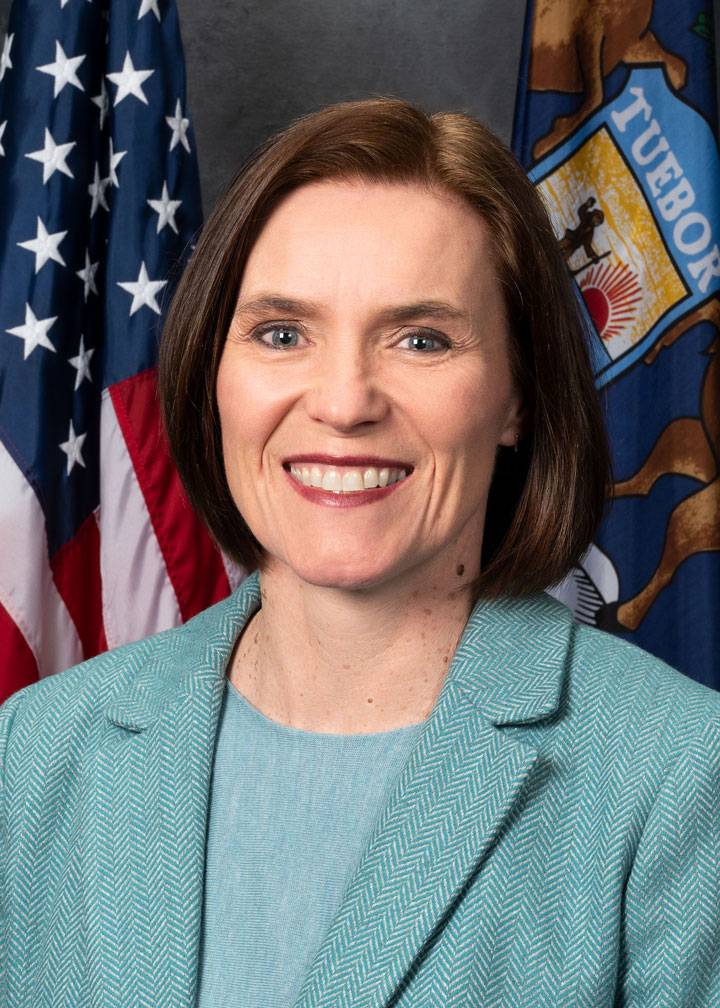
Winnie Brinks
State Senator Winnie Brinks is Michigan’s 1st Female State Senate Majority Leader. In 2013, Brinks became the 1st woman to represent Grand Rapids in the Michigan Legislature since Eva McCall Hamilton in 1920, the first woman elected to the State Legislature. As Senate Majority Leader, she has demonstrated her collaborative and inclusive leadership skills, including her committee chair assignments and legislative priorities.
In 2012, Winnie Brinks was recruited to run as a Democratic Primary write-in candidate in Grand Rapids after then State Representative Roy Schmidt switched from Democrat to Republican on the Primary filing deadline. She won the primary and went on to defeat Schmidt in the General Election. Brinks served two terms in the House before winning an open Senate seat in 2018.
In November 2022, Brinks won re-election joining her Democratic colleagues to win majorities in the House and Senate. In January 2023, Brink’s Senate colleagues chose her as Senate Majority Leader, making her the first woman to ever lead the State Senate.
Brinks made further history in January 2023 when she appointed Senator Sarah Anthony to serve as the first Black woman to lead the Senate Appropriations Committee and Senate President Pro Tempore Jeremy Moss as the highest ranking openly gay official in Michigan legislative history.
During an interview for a news magazine, Brinks said it was “great for everybody in our state to see themselves reflected in the highest offices of the state.” She stated it was not difficult choosing her leadership team given their “proven track record.” Brinks said she is big on collaboration and consensus and hearing differing points of view. She thinks it’s important to be able to “make a point without making an enemy.”
In early 2023 year, Brinks worked with both chambers to pass and expand the Elliott Larsen Civil Rights Act to include anti-discrimination protections for sexual and gender identity. Gun reform, also a top priority, was recently passed.
Brinks grew up with four siblings of Dutch immigrant parents on a family dairy farm in Washington state. She attended Calvin University in Grand Rapids and remained in the community after graduation, working in education and nonprofit sectors until becoming a state legislator. Brinks and her husband, Steve, have three daughters.
2023 Historical Public Policy Pioneer
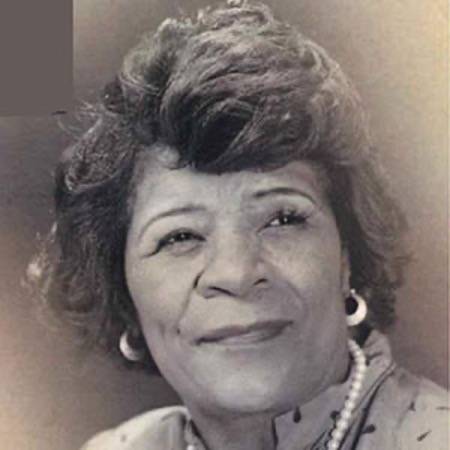
Daisy Elliott
Daisy Elliott was a gracious and passionate civil rights leader, who opposed discrimination of any kind, and fought to improve the lives of Michigan African Americans and women. She brought her leadership to Lansing and left an indelible mark as a Michigan Constitutional Convention delegate, and Michigan State Representative, all leading to the establishment of the Civil Rights Commission and passage of the Elliot Larsen Civil Rights Act.
Moving to Detroit in the 1950s, Daisy Elliott began a career in real estate while working at a local branch of the Secretary of State. She also took classes at Wayne State University.
In 1960, Michigan voters approved a Constitutional Convention (Con Con), the first since 1908. Delegates were elected statewide to rewrite the constitution. Elliott, 42, ran and was elected a delegate.
At the Con Con, Elliott lobbied for the establishment of the Michigan Civil Rights Commission to investigate discrimination and civil rights violations as well as granting judgments for victims of discrimination. To this day, Michigan is the only state that has a civil rights commission protected in the 1963 Constitution still in place today.
Following the Con Con, Elliott ran and served in the Michigan House of Representatives for Detroit from 1963-1978 and then 1981-1982. While a legislator, she proposed that the state establish an intermediate appellate court, that ultimately resulted in the creation of the Michigan Court of Appeals
Rep. Elliott (D) is most known for co-authoring legislation with Rep. Mel Larsen (R) that passed in 1976 as the Elliott-Larsen Civil Rights Act, was expanded in 2023 to prohibit discrimination on the basis of sexual orientation or gender equity or expression.
In 2020, Governor Gretchen Whitmer formally dedicated a state office building in honor of co-authors of the Elliott-Larsen Act, State Representatives Daisy Elliott (D), and Mel Larsen (R). The state-owned Lewis Cass Building in downtown Lansing was renamed the Elliott-Larsen Building.
Daisy Elliott died in 2015 at the age of 98. Fellow lawmakers remembered her as a quiet, gracious woman who fiercely opposed discrimination of any kind.
2022 Public Policy Pioneers
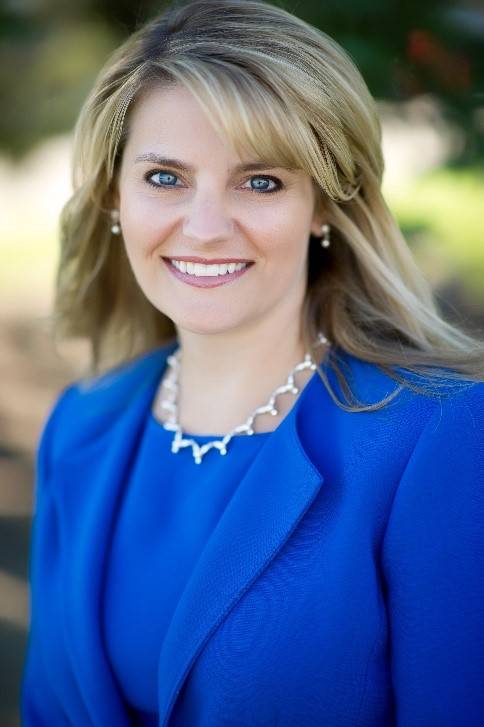
Casandra E. Ulbrich, Ph.D.
Casandra Ulbrich has brought together her expertise and leadership in higher education and public service to impact public policy. Dr. Ulbrich is Vice Chancellor for Institutional Advancement at the University of Michigan-Dearborn. Elected for a second time to the State Board of Education, Dr. Ulbrich is currently the Board’s President. In addition, Ulbrich serves on the Midwest Higher Education Compact and Education Commission of the States, both gubernatorial appointments.
As the first in her family to attend college, Ulbrich studied communications and political science at the University of Michigan. She then began her career working for Congressman David Bonior.
Dr. Ulbrich moved to higher education because she wanted to give back and assist others in accessing to higher education. She was employed at Wayne State University for over ten years, serving in various administrative positions, including Director of Corporate and Foundation Relations. Ulbrich moved on to serving as the Vice President for College Advancement and Community Relations at Macomb Community College for eight years, where she oversaw the college's marketing and communications, public relations, cultural affairs, and foundation. While at Macomb Community College she served as a MI-ACE Women’s Network Co-Institutional Representative for several years. Dr. Ulbrich has been in her current role at the University of Michigan-Dearborn since 2019.
Dr. Ulbrich was elected to the State Board of Education in 2006 and re-elected in 2014 to serve a second eight-year term. Also, Ulbrich serves on various committees of the National Association of State Boards of Education.
During the Obama Administration, she served as the Michigan Board of Education's representative on the National Association of State Boards of Education government affairs committee, a committee charged with making recommendations to Congress on federal education policies.
She is a volunteer K-9 handler with Search and Rescue of Michigan and Wolverine State Search and Recovery. She and her husband reside in Dearborn with their German Shepherds, Gryphon and Alyx.
2022 Historical Public Policy Pioneers
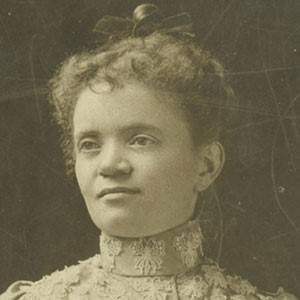
Lottie Wilson
Charlotte “Lottie” Wilson was born in 1854 in Niles, Michigan, into a family that believed in community service and valued formal education. Lottie Wilson was a trailblazer as an African American professional artist, suffragist and activist. Her voice was significant for African American women, who were not represented in the women’s progressive movement.
In Michigan and nationally, Wilson actively advocated for women’s suffrage and women’s rights. She traveled to speak at churches and art studios and participated in several organizations in the late 1800s. Lottie was a member of the National Association of Colored Women (NACW), an organization formed in 1896 because Black women were excluded from the wider suffragette movement led by white women. She was the first art superintendent for the NACW, organizing exhibits for its national conventions.
In 1896, Wilson spoke at the first annual convention of the League of Colored Women in Washington, D.C. She spoke again at the Michigan Equal Suffrage Association Convention in 1898. In 1897, she helped establish the Phyllis Wheatley Home, Detroit, a chapter of the national African American women’s club that provided lodging, educational and recreational programs, and a forum for discussing political issues.
In 1899, Lottie Wilson was the delegate from Bay City at the National American Women’s Suffrage Association Convention. At the convention, Wilson proposed a resolution that addressed the policy of separate railroad coaches for African American women in the South, who were not allowed to travel in “ladies’ cars” that were nicer and safer. It was tabled by the white women who led the conference because they determined it did not relate to women’s suffrage. This was a notable demonstration of the double axis of oppression that Black women face, racism and sexism.
Wilson was the first African American to attend the School of the Art Institute of Chicago. She was a teacher and artist, known for creating busts and paintings of important historical figures, including Frederick Douglas, Phillis Wheatley and Crispus Attucks. One of her most famous paintings portrays a meeting between Sojourner Truth and Abraham Lincoln, a nod to what she faced as a Black suffragist. Whether there ever was such a meeting is not certain. However, the painting, President Lincoln with a Former Slave, was the first piece of art by a Black artist accepted into the White House art collection.
After marrying a second time in 1906, Lottie moved back to Niles with her husband, Daniel Moss, permanently. Wilson continued to show her work and held classes at her home until her death in 1914.
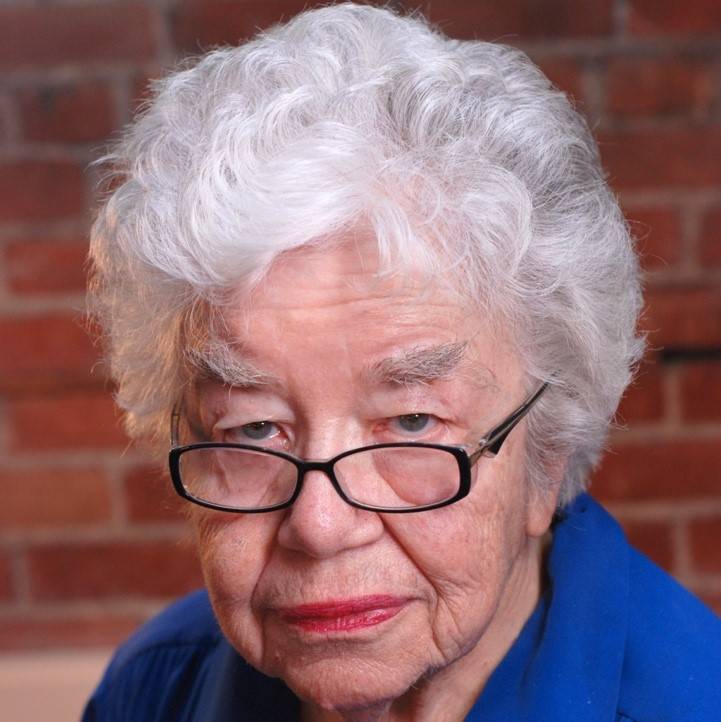
Jean Ledwith King
The culture and laws for women’s equality that we take for granted today are because of Jean Ledwith King, who was a pioneer in fighting sex discrimination in education, sports, employment, and politics.
King graduated from the University of Michigan Law School in 1968. She was one of ten women in a class of 344 students. At the time, King was 44 years old and raising three children under 12 with her husband, John King.
In 1970, King co-authored a complaint against her alma mater, the University of Michigan, for sex discrimination in admissions, financial aid, employment, and athletics. The university received millions of dollars in federal grants. An obscure executive order prohibited sex discrimination by federal contractors. After initially resisting, the university raised the pay of female faculty. It was a beginning for improving salaries, promotions, maternity leave, athletics, and scholarships at U-M. Also, it led to a nationwide reform for hiring and recruiting female faculty and staff.
King took on sexist stereotypes in public school textbooks and adequate restroom facilities for women in schools and concert halls. She successfully led a statewide campaign to allow women to use their maiden names on their driver’s licenses, claiming Michigan common law permitted women to determine their own legal name.
One of King’s most notable challenges was against Michigan State University in 1979 when she won a restraining order against the university for giving female basketball players inferior travel and meal accommodations. Overall, King’s gender equity in athletics efforts represented women and men in more than 33 sports, winning equality in scholarships, equipment, and accommodations.
From 1992-1995, King co-chaired the 21-member federal Glass Ceiling Commission, that documented the shortage of women and minorities in top management positions.
King’s fight for gender equity reached into politics. In 1970, King co-founded the Women’s Caucus of the Michigan Democratic Party, the first women’s caucus in a major party. By 1976, the caucus achieved equal division of men and women on the Michigan national delegation. Four years later, the national Democratic Party adopted the gender equity rule.
King died in 2021 at the age of 97.
2021 Historical Public Policy Pioneers

State Rep. Maxine Berman (1946-2018)
Maxine Berman is remembered as an advocate for women’s rights, and particularly women’s health. Some called her sassy, acerbic yet charming, kind, passionate. A woman with integrity. She grew up in Oak Park, attended the University of Michigan and taught at her high school alma mater before moving into politics.
Berman served in the Michigan House of Representatives from 1983-1996. She was successful in requiring accreditation for mammography facilities in Michigan, and lobbied the federal government to accredit facilities nationwide.
Berman was also a member of the bipartisan House team that created a new system to fund Michigan public schools. She chaired a bipartisan organization, Michigan Women’s Campaign Fund, to raise money for women running for office. In 1994, Berman authored a book, “The Only Boobs in the House are Men,” about her experience in the predominantly male legislature.
After leaving public office, Berman formed Capitol Strategies, Inc., focusing on advocacy training and political consulting. She founded and served as executive director of the Women’s Health Network of Michigan. She then served as director of special projects under Governor Jennifer Granholm, from 2003-2010, where she advocated to preserve affirmative action in Michigan.
From 2009-2013, Berman became the fourth person to serve and the first woman to be named as the Griffin Endowed Chair in American Government at Central Michigan University. In 2018, the Maxine Berman Academic Achievement Award was established at CMU. The scholarship recognizes the academic accomplishments of a student who embodies the qualities epitomized by Berman’s long public service to Michigan, and reflects her concerns for social justice.
Throughout her life, Berman was involved in numerous organizations, including Michigan Job Training Coordinator Council, Jewish Vocational Service, NOW, NAACP, League of Women Voters, National Council of Jewish Women, Detroit Women’s Forum, and Gray Panthers.
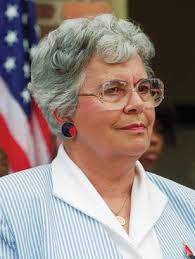
Lt. Gov. Connie Binsfeld (1924-2014)
Binsfeld was an educator, advocate and leader remembered for her bipartisan public service work on behalf of children, women, families and the environment.
Born in Munising, along the shores of Lake Superior, Connie Berube served as president of the student council before she traveled to southeastern Michigan to attend Siena Heights College. There, she met her future husband, John Binsfeld. They settled in the Detroit suburbs and raised five children.
In the late 1960s, the family moved to Leelanau County. Binsfeld began her public service path here, as leader of the local citizens’ council formed to have a voice in the federal government’s creation of the Sleeping Bear Sand Dunes National Lakeshore. Later, as a state lawmaker, she sponsored the Sand Dunes Protection Act and initiated the 1983 Quality of Life Bonding Bill, improving environmental cleanup and the state park system.
Binsfeld entered elected office, serving as Leelanau County Commissioner, then Michigan State Representative, Michigan State Senator, and finally Lieutenant Governor from 1991-1999. As Lieutenant Governor, Binsfeld chaired the 1991 Commission on Adoption and the 1996 Binsfeld Children’s Commission. Many of the commissions’ recommendations led to unanimous passage of laws that reformed adoptions and improved children’s rights.
Binsfeld was an advocate against domestic violence and authored legislation that was viewed among the strongest in the nation.
She was the first woman in Michigan history to serve in leadership in both the state legislative and executive branches, marking her as a role model of public service.
2020 Pioneers

MaryLee Davis, Ph.D.
Dr. MaryLee Davis has served at the highest leadership levels with numerous local, state and national organizations devoted to health care, education, public policy, diversity, youth, community service, and advocacy for women. Davis has held positions at the national level with the American Hospital Association and on the national board for Girl Scouts of the USA.
She has often been credited with "breaking the glass ceiling” throughout Michigan, which helped clear a path for other women. Davis was appointed by three governors to four Treasury Department positions that had statewide impact including serving as a Michigan Finance Authority Board member and appointments. Davis was the first woman administrator at Michigan State University and in the Big Ten to work as a university legislative liaison officer and was the first woman to serve in the position of the corporate secretary of the MSU Board of Trustees.
Among her numerous awards, Davis was the first person to receive the now International ATHENA Leadership Award. In 2008, she was recognized for and received the Michigan State University Lifetime Achievement Award for Excellence in Diversity.
Davis was co-founder and president of the Capital Region Community Foundation, the Zonta Club of East Lansing Area, and the Michigan Campus Compact. Her organizational leadership includes service as president of the National Association of Women in Chambers of Commerce, as a board member of the Lansing Regional Chamber of Commerce, as president of the Capital Area United Way and as the CAUW general campaign chair.
Serving as state coordinator for the Michigan ACE Women's Network, Davis created its influential Public Policy Initiative.
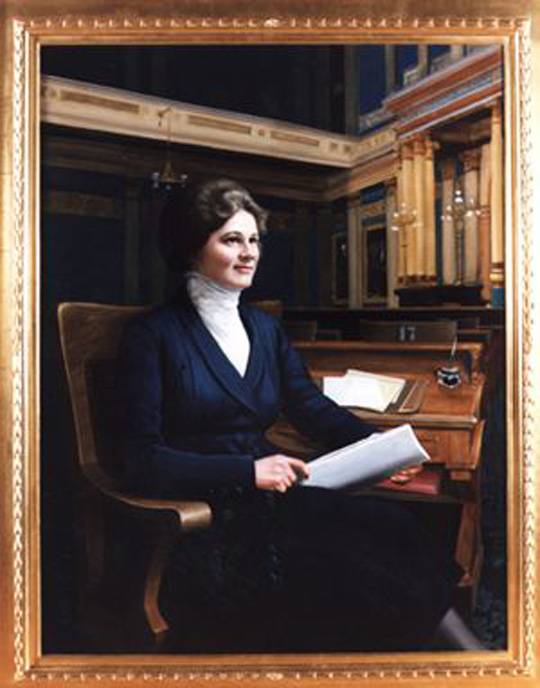
Eva McCall Hamilton (1871-1948)
As we celebrate the centennial anniversary of the ratification of the 19th Amendment to the U.S. Constitution providing women the right to vote, we also celebrate Eva McCall Hamilton, a leader in the suffrage movement, and first woman to be elected to the Michigan Legislature. Hamilton was elected to the Michigan Senate in 1920 by a 2-to-1 margin in the first election women were allowed to vote. She served from 1921-22 and was a member of four legislative committees. Her legislative focus was on advocating on behalf of women and children. One of her successful bills raised the mill tax in certain cities to fund teacher pay raises. Another one of her greatest accomplishments was working on legislation to reform the Michigan Mothers’ Pension Act, providing public funds for keeping underprivileged children in their homes rather than institutions.
Prior to her election, Hamilton was a teacher and active in public issues, serving on local, state and national committees focusing on encouraging women’s greater civic engagement. She traveled throughout Michigan to start other equal suffrage organizations.
In 1910, Hamilton led the horse-drawn “Lilly Float for Suffragists” entry by the Grand Rapids Equal Franchise Club in the Grand Rapids annual homecoming parade, followed by 75 local suffragists in decorated cars. In 1912, she worked with two other women to mail out six tons of “Votes for Women” literature, buttons, sticker and other items. That same year, she worked on a major state referendum on women’s suffrage.
In 1919, Hamilton was involved in establishing the Michigan League of Women Voters in Grand Rapids, later becoming the League of Women Voters of Michigan.
After being defeated in the three-way Republican primary, Hamilton left the Michigan Senate and remained socially active. Hamilton was married to Charles B. Hamilton, an advertising executive.
When Hamilton died in 1948, she was still the first and only woman to have served in the Michigan Senate. No woman was elected to Hamilton’s Grand Rapids’ Senate seat until State Representative Winnie Brinks (D) won in 2018.
2019 Pioneers

Carol Hollenshead
Carol Hollenshead spent her entire career at the University of Michigan, serving at the Institute of Gerontology, the Nursing School, and the Office of Vice President for Research. Her passion for advocating for women, representing women, counseling women, and cheerleading for women took her to a seemingly predestined mission when she was named Director of the Center for the Education of Women.
Hollenshead died on November 17, 2018. As director of CEW, she touched the lives of countless women at the University through counseling, scholarships, advocacy and research. She was a steady hand guiding CEW from its original role into a more pivotal place in the campus community.
She had two children and balanced parenting with a power career that an inspiration and a model to the women who followed her. Her own experiences and her sense of simple justice lead her to press university administrators for enlightened leave and tenure policies in support of working mothers.
Her connection to MI-ACE began in 1994 and continued until her retirement in 2016. During that time, her thoughtful and persistent leadership pushed us to do more for more women in higher education.

Gov. Gretchen Whitmer
As Michigan’s governor, Gretchen Whitmer is committed to solving problems for Michiganders across the state. Under her leadership, that means expanding access to affordable health care, improving education and skills training, respecting working families, cleaning up Michigan’s drinking water, and fixing the roads.
During her time in the Michigan Legislature, Whitmer negotiated an increase in the minimum wage with a cost-of-living adjustment, and because of that bipartisan work, the minimum wage went up for the fourth time in 2018. As Senate Democratic leader, she brought workers, labor unions, and businesses together to fight anti-worker legislation.
Whitmer taught at the University of Michigan and Michigan State University, and, in 2016, she stepped up to serve as Ingham County prosecutor; in that role, she established a new Domestic Violence and Sexual Assault Unit, sped up the rehabilitation of non-violent first-time offenders, and asked the Michigan State Police to investigate the integrity of the county’s evidence room. Whitmer is a graduate of Michigan State University and the Michigan State University College of Law.
2018 Pioneers
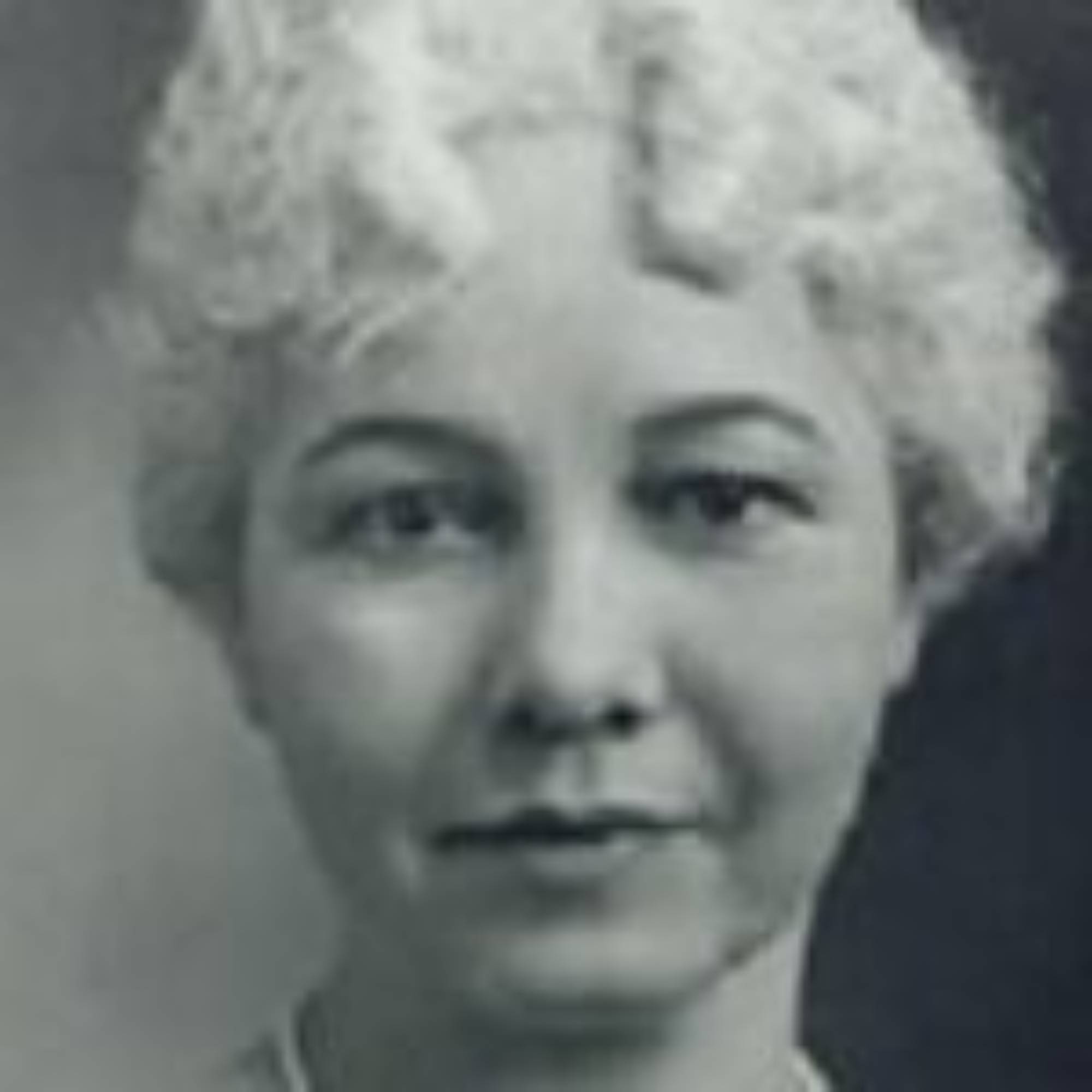
Cora Reynolds Anderson (1882-1950)
Anderson was Michigan’s first woman and first Native American state representative. The House of Representatives' office building in Lansing bears her name. She actively supported prohibition, ran an anti-tuberculosis campaign in L’Anse and worked to bring the first public health nurse to Baraga County.
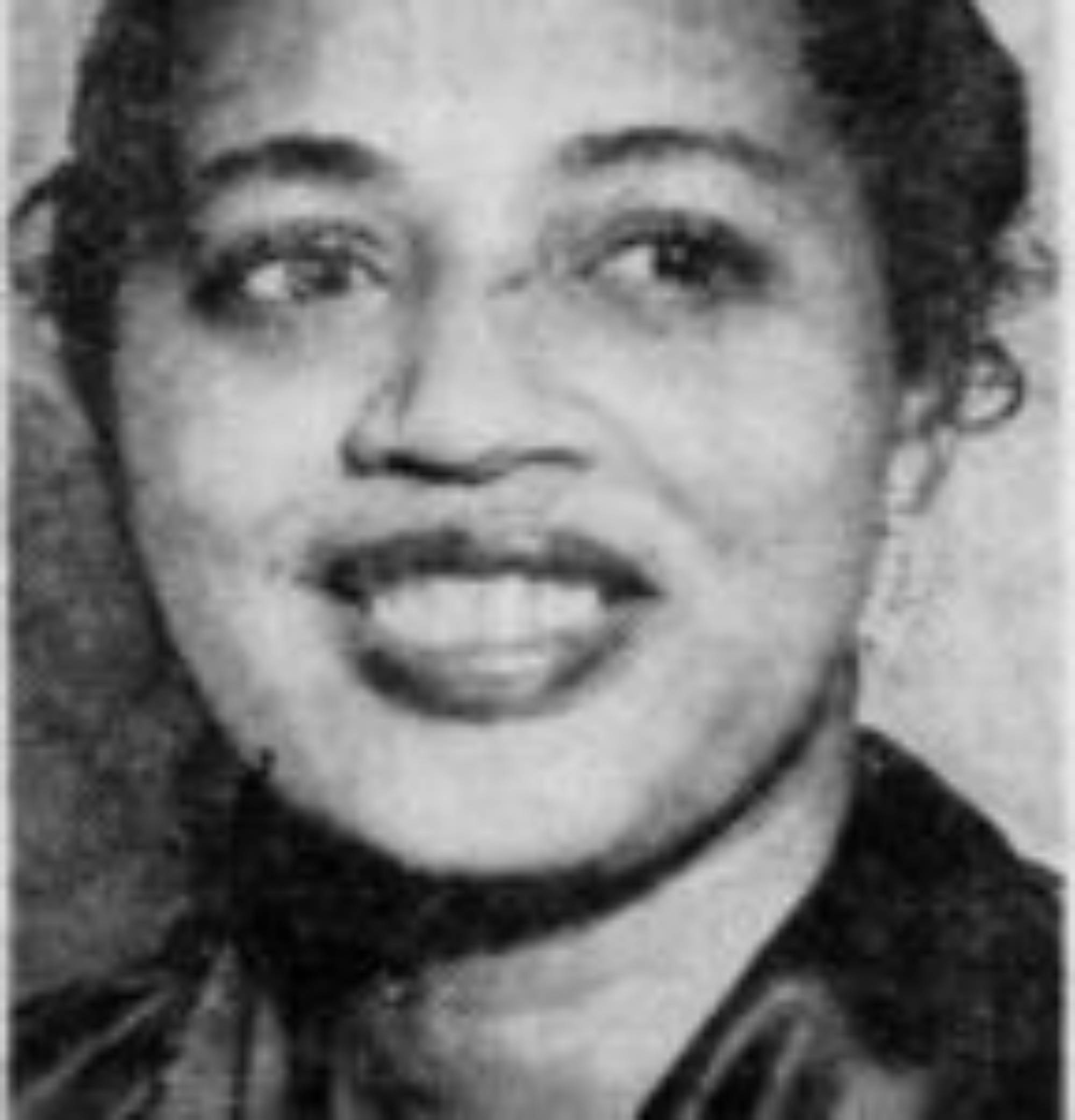
Charline Rainey White (1920-1959)
In 1950, Charline White became the first African American woman elected to the Michigan House of Representatives. Representative White ran and served as a Democrat for the district representing the city of Detroit. She graduated from Cass Technical High School and later studied at Poro College and Wayne State University.
2017 Pioneers

U.S. Representative Debbie Dingell
Dingell represents the 12th District of Michigan in the U.S. House of Representatives. Before election to Congress, she was chair of Wayne State University Board of Governors. For more than 30 years, Dingell served General Motors Corp. as president of the GM Foundation and senior executive for public affairs.

Lenore Romney
Lenore Romney was the first lady of Michigan (Gov. George Romney, 1963-69). Romney was a popular speaker, a pro-choice advocate and a supporter of women’s rights. She ran unsuccessfully for U.S. Senate at the urging of state party leaders.
2016 Pioneers

Joan Bauer
Joan Bauer was recognized for her achievements as a contemporary honoree while Cora Mae Brown was saluted posthumously during the Michigan ACE Women’s Network Annual Conference, which was held June 6-7 at the Radisson Hotel in Lansing. They were recognized during “Voices! Salute to Women and the Power of Public Policy.”
Bauer has been an active leader in her community for more than 30 years. She served six years in the Michigan House of Representatives for the 68th District, which serves northern Lansing. A strong advocate for women’s rights, she introduced House Bill 4851 in 2009, which prohibited paying someone else than “comparable worth.” She also introduced and co-sponsored other bills, including banning smoking from restaurants and businesses. Bauer served as director of volunteer services at Ingham Regional Medical Center, and chaired the Ingham County Women’s Commission. She is a former member of the Lansing Rotary Foundation Board, Lansing Rotary Club, Junior League of Lansing, Capital Regional Community Foundation Board of Directors, and Capital Area United Way Board of Directors.
She chairs the 2020 Girls Giving Society and the Capital Area United Way Women’s Leadership Council.
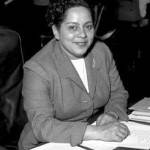
Cora Mae Brown
Brown was the first African American woman to become a Michigan state senator, elected in 1952, and the first African American woman to become president of the Senate. Known for tirelessly fighting against the barriers of racism and sexism, Brown dedicated her career to her community, civil rights and women’s rights. While in the Senate, she fought for fair housing, equal employment and anti-discrimination legislation. She was a social worker in the Women’s Division of the Detroit Police Department, later a police officer, and maintained a private law practice. She was appointed special general counsel for the U.S. Postal Service, where she worked until her death in 1972.
2015 Pioneers
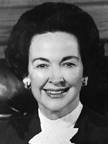
Chief Justice Mary Stallings Coleman
The first woman elected to the Michigan Supreme Court in 1972, she was unanimously elected by her peers to serve as chief justice in 1979. As the first woman to preside over the state of Michigan’s highest court, she was only the fourth woman in the nation to serve as chief justice over a high state court. Known as an innovator, Stallings Coleman spent 12 years prior to her tenure on the Michigan Supreme Court serving as a probate and juvenile court judge, drafting legislation that created the state’s Child Protective Services and Office of Youth Services. She also was a presidential appointee to the National Commission on the Observance of Women’s Year, was an Albion College trustee, and advisor for children’s programs at the Edna McConnll Clark Foundation. A member of the Michigan Women’s Hall of Fame inaugural class in 1983, she received the Champion of Justice Award from the Michigan Bar Association in 1993.

Margaret “Ranny” Towsley Riecker
Towsley Riecker served as a trustee of the Herbert H. and Grace A. Dow foundation for more than 51 years, spending 14 years as its president. She was a philanthropist known for her ability to gather diverse stakeholders to tackle challenging community problems, and is remembered as a woman who espoused the viewpoint that it is people who solve problems, not money. She served as a trustee of the Harry A. and Margaret D. Towsley Foundation since 1962, where she also spent time as president. Additionally, she served as a member of the board of trustees at Carleton College and Central Michigan University, and as a member of the board for the University of Michigan Gerald R. Ford School of Public Policy, and the Center for the Education of Women. She co-founded the Council of Michigan Foundations in 1973, and served as vice-chair of the Michigan Republican Party, later serving as a Republican National Committeewoman. The Chippewa Nature Center’s Margaret Ann (Ranny) Riecker Nature Preschool Center was named in her honor.

U.S. Sen. Debbie Stabenow
U.S. Senate (2000-Present), U.S. House of Representatives (1996-2000), Michigan Senate (1991-94), and Michigan House of Representatives (1979-90): Stabenow’s political career began when she was elected to the Ingham County Board of Commissioners at 24 years old. She later went on to become the first woman from Michigan elected to the United States Senate, and is only the second person from the state to have served in both houses of the Michigan State Legislature as well as both houses of the United States Congress. She is widely admired for her communication priorities, and has been a continuing voice on behalf of women and higher education. Stabenow has played a unique role in shaping the nation’s manufacturing, health care, and agricultural policies, and her influence in the state legislature is evident throughout Michigan law, from the Michigan property tax cut to legislation to protect children and families. She was inducted into the Michigan Women’s Hall of Fame in 2005.

Kathleen Wilbur
The first woman in Michigan to lead three state departments, Wilbur is known for her commitment to public service, higher education and advocacy for Michigan’s vulnerable populations. Her consumer-focused initiatives include work to create the Office of Financial and Insurance Services to provide better cross-training and information sharing among enforcement officers, monitors and risk managers. She also launched the Governor’s Quality Care Program to provide recognition to the people who care for Michigan’s most vulnerable populations. She has more than 30 years of executive leadership experience in government and higher education, and frequently is involved as a panelist and speaker on public policy. She has long fought for higher education financing equity, and has been a key force in employing a team approach among Michigan’s 15 public universities to tackle funding issues. Currently, she is vice president of development and external affairs for Central Michigan University, where she also has served as interim president. She was inducted into the Michigan Women’s Hall of Fame in 2007.
2014 Pioneers

Sen. Lana Pollack
Michigan Senate (1983-94); Michigan Environmental Council (1996-2008); Chair, U.S. Section, International Joint Commission (2010-present): Inducted into the Michigan Women’s Hall of Fame in 2002, Pollack is known as a leading advocate for women and children, and the environment. She established two bi-partisan coalitions, one to promote policies preventing teen pregnancy and another to fight gun violence. She also wrote a bill amending Michigan’s civil rights law to end discriminatory practices that kept women athletes off the state’s private golf courses during peak times and relegated them to second-class facilities within their own clubhouses. Additionally, she is credited with introducing legislation that would later be called the “Polluter Pay Law.”

Sen. Alma Wheeler Smith
Michigan Senate (1995-2002), Michigan House of Representatives (2005-10): There is not an issue of concern for women and families that Wheeler Smith did not champion. She has worked for equal access to education and creating educational opportunities for people from preschool to graduate school, a safe and clean environment, vital urban centers, full access to health care for everyone, a healthy business sector, and protection of the civilrights and liberties of all of Michigan’s citizens. Known as a role model, she has been a mentor and advocate for women inside and outside the political arena.
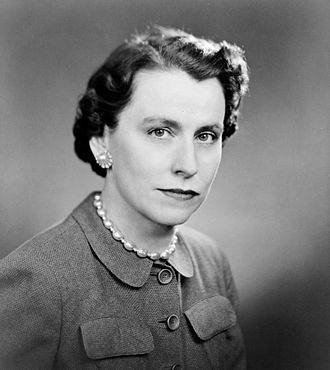
Lt. Gov. Martha Griffiths, M.C. (deceased)
U.S. House of Representatives (1955-74), two-time lieutenant governor of Michigan (1983-91): Known as a fighter for women’s rights, Griffiths was the first woman representative to win appointment to the House Ways and Means Committee, and she was the first female lieutenant governor in Michigan. Biographers note the first of her two greatest contributions to the women’s rights movement were to champion inclusion of the sex discrimination amendment to the 1964 Civil Rights Act – later prompting the Equal Employment Opportunity Commission to more vigorously enforce the act. She also is credited with resurrecting the Equal Rights Amendment before Congress in the early 1970s.
2013 Inaugural Pioneers
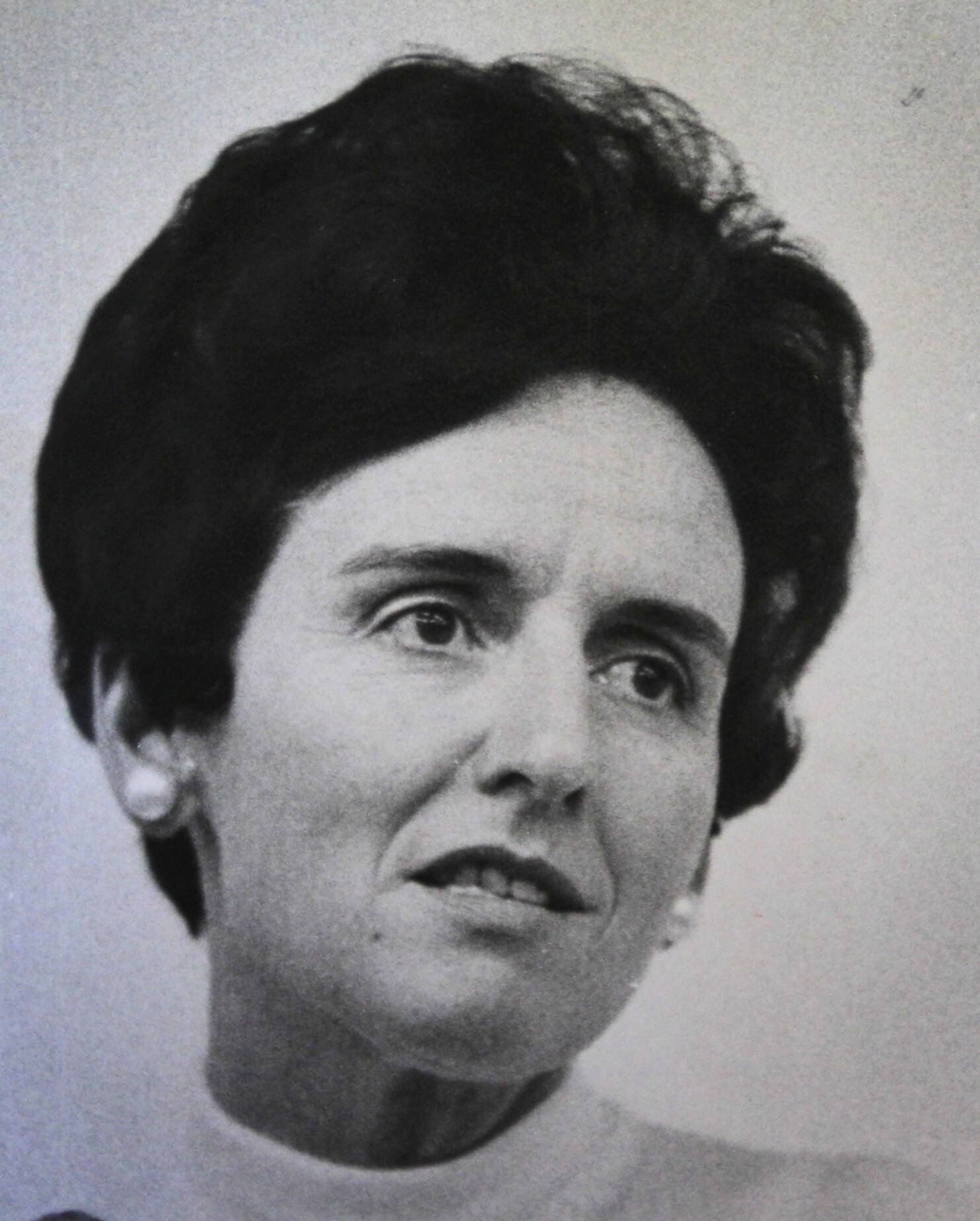
Helen Milliken
Helen Milliken and Elly Peterson were honored posthumously on June 3, 2013, during the Michigan ACE (American Council on Education) Women’s Network conference. The association is Michigan’s largest professional development group for women who work in higher education.
Milliken, who died in 2012 at age 89, fought for women’s rights and was a proponent of the environment during her tenure in Lansing when her husband, William Milliken, served as a senator and later governor. She was also a tireless advocate for the arts.
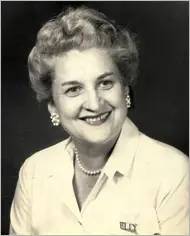
Elly Peterson
Elly Peterson died in 2008 at age 94. She was known as “mother of the moderates” and served as secretary of Michigan’s Republican Party and later was active in the Republican National Committee. Her advocacy helped open doors for women in politics.
